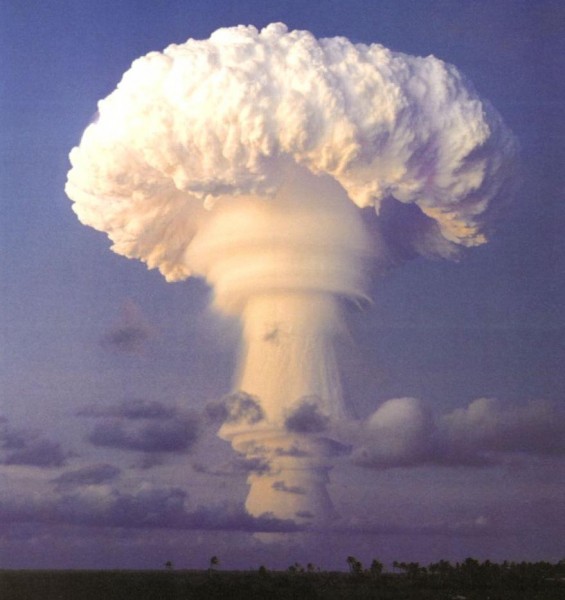(In 2009 I wrote a two-week series of blog posts about post-apocalyptic novels & films for Borders’ blog. Because this subgenre has continued to flourish, I am reprinting the posts here.)
 So I’ve dipped my toe in the postapocalyptic water over the last week to offer a brief survey of books and movies that I think are important in the After-the-Fall canon. Of necessity I’ve left out a bunch that I’d love to discuss because they’re just plain fun (Night of the Comet, the Resident Evil movies, “A Boy and His Dog,” a ton more). But as a foundation for talking about what in the world could be so appealing about the end of the world, I think we’ve got a broad spectrum of approaches and scenarios here.
So I’ve dipped my toe in the postapocalyptic water over the last week to offer a brief survey of books and movies that I think are important in the After-the-Fall canon. Of necessity I’ve left out a bunch that I’d love to discuss because they’re just plain fun (Night of the Comet, the Resident Evil movies, “A Boy and His Dog,” a ton more). But as a foundation for talking about what in the world could be so appealing about the end of the world, I think we’ve got a broad spectrum of approaches and scenarios here.
So what’s the appeal of the apocalypse?
Generally, and most obviously, is the What Would I Do? question. What steps would I take and to what lengths would I go to flee the nukes, ward off zombies, quarantine myself from plague, fight the aliens, hide from the comet strike (good luck with that one)? Could I beat this rap? And if I did, how would I stay alive in the aftermath? Avoid starvation, radiation, enslavement, being eaten, freezing/ burning/being raygunned to death? Am I a loner, a predator, a rebuilder?
A necessary component question that, revealingly, people seldom seem to ask themselves is, Why should someone let me in his bomb shelter? In other words, what do I have to offer the immediate situation and the long-term process of survival and rebuilding? It’s like a big-budget version of that ruthless, Who’s Afraid of Virginia Woolf? party-game gigglefest and marriage-ender, “Lifeboat.”
When I wrote my first novel, Ariel, at the ripe old age of 19, I set out to write a Boys’ Adventure Story about the coolness of getting by in the postapocalyptic world. As I researched and thought about what it would really be like, the book itself began to show me that my initial instincts were misguided:
Because we lived away from the city, I sometimes walked down the street to the canal, and it was easy, with no cars coming and no city noises, to pretend something had wiped everybody out. Everybody but me. I think I wanted it that way. I thought up endless scenarios: the typical and clichéd ones of nuclear annihilation, others involving humankind wiped out by mutant viruses, bacteriological warfare, invading aliens, or disappearance in some great exodus I’d somehow missed out on.
But I’d never figured on anything like the Change. And when it happened it turned out to be nothing like what I’d wanted all along. It wasn’t some grand and glorious heroic struggle, One Man’s Fight for Survival. It was work, and it hurt — emotionally and physically. I never found out what happened to some people I cared for very much. The end of the world turned out to be something I preferred to fantasize about rather than experience. In that wandering time before I met Ariel there was one thought that often ran through my head: I’d always wanted to be alone like this, but I’d never realized it would be so lonely.
That was about when I realized that the writer in me wanted to subvert the notion of survival as somehow romantic. The vast majority of postapocalyptic movies and books contain an element (if not an outright assumption) of “Wouldn’t it be cool if this happened?” (Ariel is certainly guilty of this.) Even the more dour ones mine the huge pathos of “love at the end of time,” or at least laud the human spirit in the face of cosmic indifference. I believe one of the reasons McCarthy’s The Road has generated such interest is precisely because it is one of the few such works that contains not an ounce of romanticisim whatsoever.
Next time we’ll go from personal to anthropological. Woo hoo!